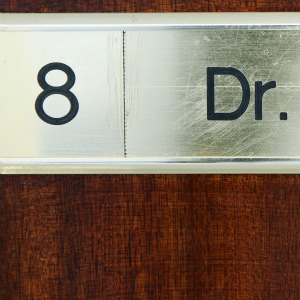Exclusive GPs are finding it increasingly harder to recruit, with almost one in ten GP partner positions currently vacant, shows a Pulse survey that calls into question promises from all the main parties to extend access to GPs.
The survey of 458 GPs reports finds that 9% of full-time equivalent GP positions are currently unfilled, compared with a 6% vacancy rate last year.
The figures also reveal that it is taking longer to recruit partners, with almost one in five roles taking more than a year to fill, compared with one in 10 vacancies last year.
GPs have told Pulse that they are having to close their doors because they have been unable to recruit partners, even in affluent areas of London.
These are the worst vacancy rates in the four years Pulse has been running the survey, and they come at a time when political parties are pledging to introduce seven-day access, same-day access to GPs for some patients and a GP in every A&E department by next winter.
Several GP partners responding to the survey said they had resorted to financial incentives, also known as golden hello schemes, to attract partners, with a variety of outcomes.
Others had been successful in recruiting only because they offered other benefits such as flexible working hours or promises never to have to work ‘unsocial hours’.
Labour and UKIP both promise to increase GP numbers by 8,000 by 2020, and the Conservatives and Lib Dems both promise 5,000 new GPs.
But GP leaders say that these new figures reinforce the belief that it will be impossible for parties to carry out their election pledges.
Pulse recently revealed almost a third of GP training places across the UK are currently unfilled and recent surveys show many GPs thinking of early retirement and increasing numbers of doctors heading abroad, piling even more pressure on the service
Related stories
Why election promises of more GPs don’t add up
Third of GP trainee positions remain unfilled across the UK following first round of recruitment
GPs to be offered incentives to delay retirement under £10m strategy to solve workforce crisis
Dr Imogen Bloor has had to close her GP practice in Islington in north London because it was ‘impossible’ to recruit. She told Pulse: ‘We have tried our utmost to find a way of continuing to provide high-quality care for our patients, but we feel unable to take the practice forward.’
Dr Raghunandan Vedapanakal, a GP in Whitehaven, Cumbria, said his practice has been two GPs short for two years, with 13 GPs covering 24,000 patients. He said: ‘We are in a rural area and there is a lack of GPs due to a national crisis. GPs are taking early retirement due to pension reforms, work stress, too much meddling by CCG and the Government. There is increasing demand from an ageing population, stagnant or decreasing income, GPs emigrating and 12-hour working days.’
GPC education and training subcommittee chair Dr Krishna Kasaraneni said he was ‘not surprised’ there statistics are going in the wrong direction and poured scorn on politicians’ claims that they will be able to create 5,000-8,000 new GPs by 2020. He said: ‘Unless someone has a Back to the Future DeLorean they can use to manipulate time, I don’t see how they can create that many GPs in that short time.’
A 10-point plan to tackle GP recruitment and retention worked up by NHS England, Health Education England, the GPC and RCGP got a lukewarm reception from the profession when announced earlier in the year.
The plan focuses on marketing general practice as a career; incentives to work in under-doctored areas; a new national returner and induction scheme; incentives for older GPs to remain in practice; MBA schemes for trainees; and premises funding for practices wanting to work in the new models of care.
How GP vacancy rates have developed
2011: 2.1%
2012: 4.2%
2013: 7.9%
2014: 6.4%
2015: 9.1%
In all years, to work out vacancy rates, Pulse asked: How many full-time equivalent GP positions are there currently at your practice?. We gave six options: 1, 2, 3, 4, 5, more than five. When they specified more than five, we asked them to specify more. We then asked: How many of these full-time equivalent GP positions are currently vacant? We gave them the six same options. This year, totalling the answers up from 458 full responses, there were 2,050 GP positions in total. Of these, 187 positions were unfilled (9.1%). See below for more details about the survey.
Other survey results
Have you had to recruit a partner for your practice in the past 12 months?
Yes – 212
If yes, how long did the process take? (If you have not yet recruited, please specify how long you have been looking)
More than 12 months – 18%
6-12 months – 17%
3-6 months – 21%
2-3 months – 20%
1-2 months – 11%
Less than one month – 13%
The survey launched on 9 February 2015, collating responses using the SurveyMonkey tool. The 37 questions covered a wide range of GP topics, to avoid selection bias on one issue. The survey was advertised to readers via our website and email newsletter, with a prize draw for a Samsung HD TV as an incentive to complete the survey. Some 458 GP partners answered these questions.


















